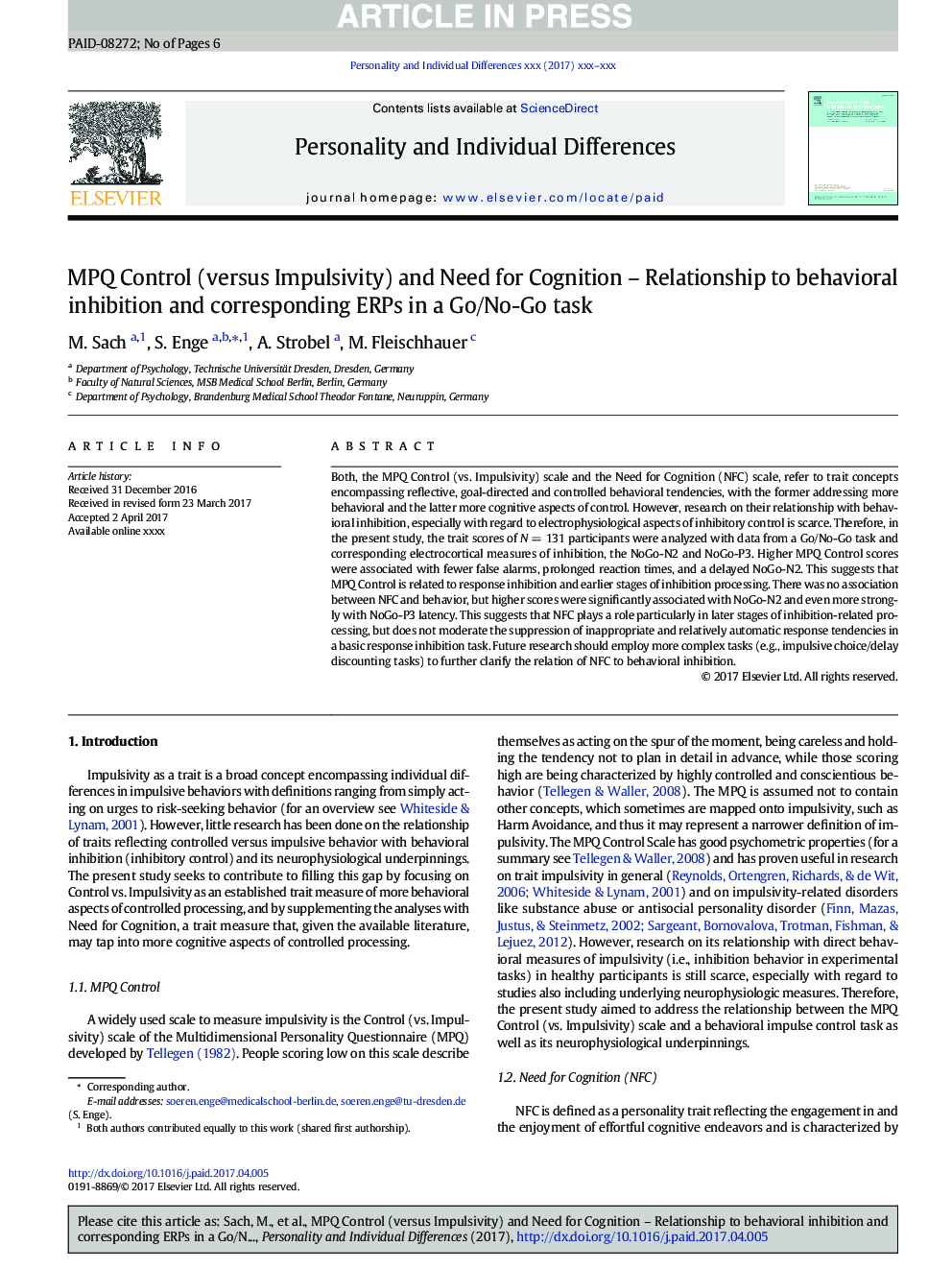| Article ID | Journal | Published Year | Pages | File Type |
|---|---|---|---|---|
| 7249374 | Personality and Individual Differences | 2018 | 6 Pages |
Abstract
Both, the MPQ Control (vs. Impulsivity) scale and the Need for Cognition (NFC) scale, refer to trait concepts encompassing reflective, goal-directed and controlled behavioral tendencies, with the former addressing more behavioral and the latter more cognitive aspects of control. However, research on their relationship with behavioral inhibition, especially with regard to electrophysiological aspects of inhibitory control is scarce. Therefore, in the present study, the trait scores of NÂ =Â 131 participants were analyzed with data from a Go/No-Go task and corresponding electrocortical measures of inhibition, the NoGo-N2 and NoGo-P3. Higher MPQ Control scores were associated with fewer false alarms, prolonged reaction times, and a delayed NoGo-N2. This suggests that MPQ Control is related to response inhibition and earlier stages of inhibition processing. There was no association between NFC and behavior, but higher scores were significantly associated with NoGo-N2 and even more strongly with NoGo-P3 latency. This suggests that NFC plays a role particularly in later stages of inhibition-related processing, but does not moderate the suppression of inappropriate and relatively automatic response tendencies in a basic response inhibition task. Future research should employ more complex tasks (e.g., impulsive choice/delay discounting tasks) to further clarify the relation of NFC to behavioral inhibition.
Related Topics
Life Sciences
Neuroscience
Behavioral Neuroscience
Authors
M. Sach, S. Enge, A. Strobel, M. Fleischhauer,
